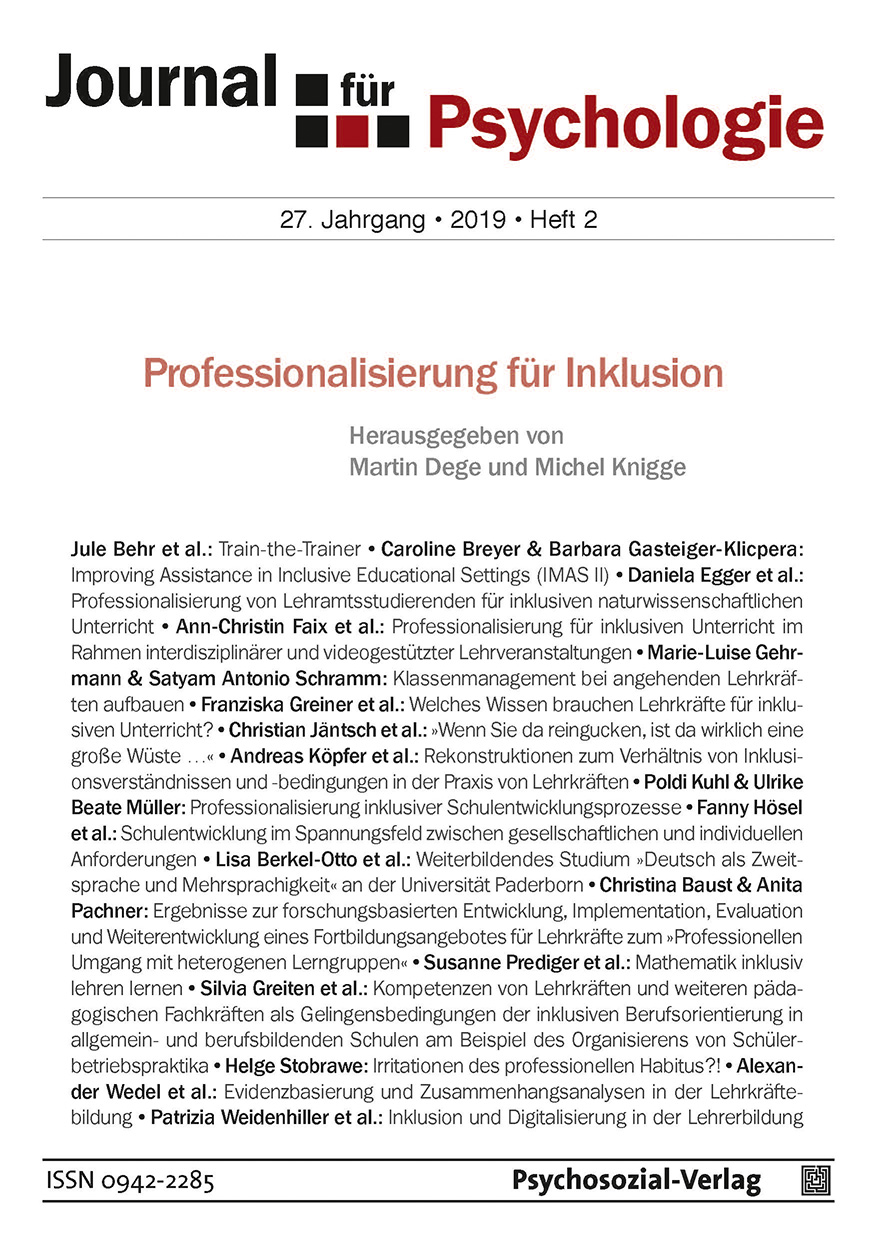Competences of teachers and other educational professionals as condition for the success of inclusive vocational guidance in general and vocational schools, exemplified on organizing work placements for students
DOI:
https://doi.org/10.30820/0942-2285-2019-2-313bKeywords:
inclusive vocational guidance, student internships, school development, teacher professionalizationAbstract
Work placements for students bridge the gap between school and the world of work and the vocational training system. They are part of a comprehensive set of measures for vocational orientation and are organized by a multi-professional team of different actors, such as teachers and other educational staff involved in the process of secondary education and professionals working in institutions that accompany the transition. Though little research has been done on inclusive vocational guidance, it can be assumed that complexity of this process will increase with new cooperations. This article presents results from multi-professional group discussions with participants from various institutions and derives competences for inclusive vocational guidance in schools. The results point to the necessity of identifying fields of action, investigating cooperation between actors within the school system and, above all, determining knowledge references that arise subject-specifically for inclusive vocational orientation from the needs of students with special educational needs.
Published
How to Cite
Issue
Section
License
Copyright (c) 2020 Journal für Psychologie

This work is licensed under a Creative Commons Attribution-NonCommercial-NoDerivatives 4.0 International License.
This license allows private use and unmodified distribution, but prohibits editing and commercial use (further information can be found at: https://creativecommons.org/licenses/by-nc-nd/4.0/).
The terms of the Creative Commons licence only apply to the original material. The reuse of material from other sources (marked with a reference) such as charts, illustrations, photos and text extracts may require further permission for use from the respective copyrights holder.



